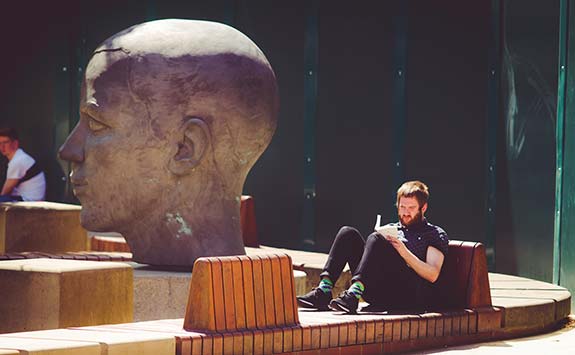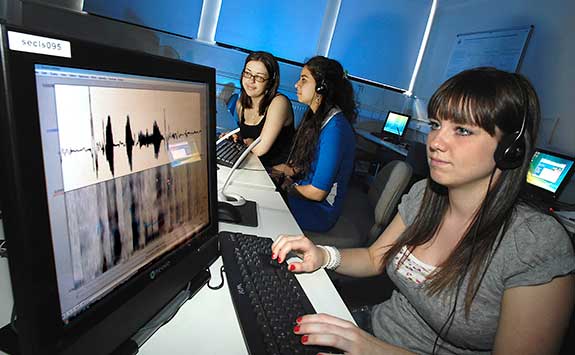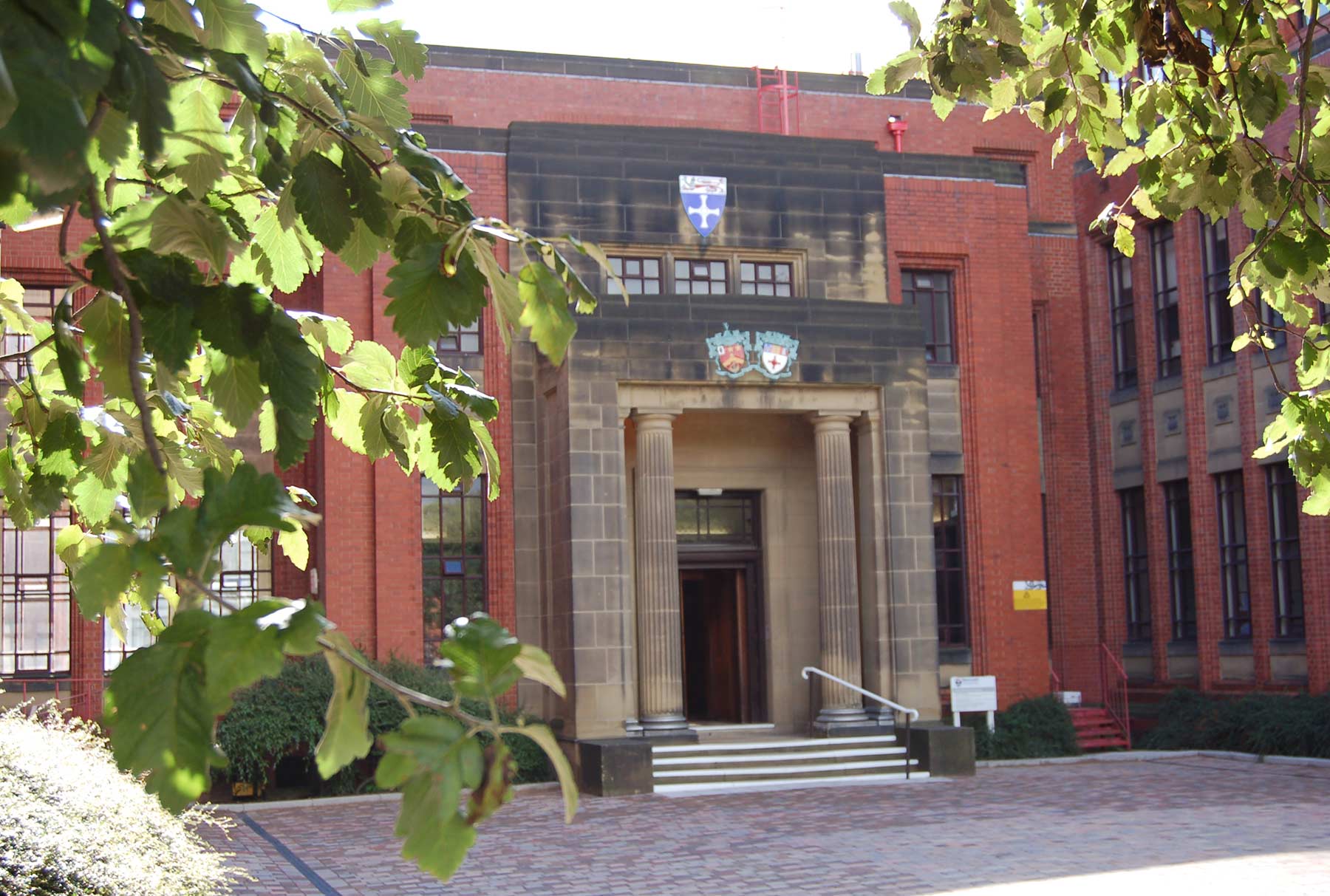History
We have a long and proud history of learning and innovation. Here we chronicle some of the innovations that have made the School of Education, Communication and Language Sciences what it is today.
Groundbreaking developments
Throughout our history, academics from Newcastle University have pioneered new approaches in our fields. We've led on groundbreaking developments. We play a leading role in policy and practice developments
More than 130 years of teacher training
In 1990, Newcastle University celebrated 100 years of teacher education. The first 20 'pupil teachers' enrolled at Newcastle's College of Science in 1890. The aim was to improve the quality and status of teaching by attaching training to institutions of university rank. The training centre created in 1890 became a college department in 1905. In 1972, our services combined into the School of Education.
The original training centre was among the first six established in England. Its principal (and 'Master of Method'), Mark Wright, became the country's first holder of an established Chair in Education in 1895.
His department took a lead in challenging assumptions that subject knowledge made training unnecessary.
Mark Wright's successor in 1920, Godfrey Thomson, developed the country's first group intelligence tests in Northumberland. The purpose was 'helping children of intelligence' from humble backgrounds to not be 'overlooked'.
Over time, our pioneering research, with direct application to practice, has influenced a wide range of policy and practice. Since then we've progressed that work. The E. G. West Centre's research examined private schooling in some of the world's poorest economies. SOLE Central is a global hub for research into self-organised learning environments.
The first professional degree in speech and language therapy
Speech and Language Sciences began its life as The Speech Department on 22 June 1959. The Speech Department was a sub-department of the teaching hospitals of King’s College. This was within the Newcastle division of the University of Durham. It settled into its current home when Newcastle University became independent in August 1963.
It was the first programme in the UK to offer a professional degree in speech and language therapy. The first students graduated in 1967.

Pioneering work
The pioneer of the Newcastle Department of Speech was Muriel Morley. A speech therapist, she was also a key figure in the development of the profession in the UK. Working with children with speech disorders, she advocated the personal and social importance of communication. She was passionate about promoting its academic study.
Muriel Morley had a three-stranded mission for the sub-department, which included:
- providing high-quality therapy to people with communication disorders directly and through encouraging best practice
- providing training for a professional qualification in speech therapy to degree level
- promoting research into the nature of communication and its disorders
Subsequent heads of Speech and Language Sciences have promoted this mission. Newcastle was the first in the UK to use a case-based problem-solving approach in teaching. Professor Barbara Dodd instigated this.

Campus clinics
Our Children's Clinic was established in the 1970s and the Tavistock Aphasia Centre in 1999. They are both integral to student learning and to our clinical research:
Our vision
For over 50 years our vision of:
- high quality teaching and learning
- excellent research
- working with the profession to impact on practice has been the cornerstone of our provision. It has ensured our continued international reputation for excellence.
One of the oldest Phonetics Laboratories in the UK
The Newcastle Phonetics Laboratory is the second oldest in the country. Professor Robert Curry founded it in 1934, in what was then Armstrong College at Newcastle. The lab was co-sponsored by the then Departments of English and Physics. This is a testament to the interdisciplinary nature of phonetics since the early days.
The lab contained an oscillograph designed by Curry himself. It allowed him to produce Cardinal Vowel oscillograms and to launch research in the recording and analysis of Northern English dialects.
Leading phonetics research activity
Eminent figures who co-led the lab include Professor Harold Orton. Orton was a notable English dialectologist who published widely on Northumbrian English dialects. He is mostly remembered for the English Dialect Survey. This lay the foundation for thriving research activity in this discipline. Colleagues in the School of English Literature, Language and Linguistics lead on establishing dialect corpora and documentation to this day
Another leading figure in the early days of the phonetics lab was Professor Edward Gick Richardson. He was a prominent researcher in the field of acoustics and ultrasonics. His textbook Sound (1927) went into its fifth edition in 1961. It remains a valuable reference to researchers to this day.
The arrival of Professors Lesley Milroy and Gerry Docherty in the late 80s played a role in extending the remit of the lab. They introduced the investigation of typical and atypical speech development and disorders. They advanced our knowledge of phonological variation and change in Tyneside English.
The research of the Phonetics Lab has since evolved to include:
- socio-phonetics
- speech and language processing
- pronunciation research
- the documentation of phonetic and phonological patterning in various languages, with strong expertise in Arabic
Cross-discipline collaboration
We collaborate with linguists and speech and language scientists across various units and disciplines at Newcastle. This has led to the creation of a cross-faculty Phonetics and Phonology Research Group, led by Professor Khattab. It also led to the creation of a LingLab. The LingLab includes state-of-the-art laboratory phonology equipment and also various experimental linguistics resources.
Acknowledgements
The information related to education is taken from:
- a 1971 departmental publication by Colin Tyson and Professor John Tuck
- an essay collection edited by Gordon Hogg as part of the centenary celebrations
The information on the early days of Newcastle Phonetics Lab has been made possible thanks to the research carried out by Michael Ashby from the UCL Phonetics Lab.
- Ashby, M. (2016). Experimental phonetics in Britain, 1890-1940 [PhD thesis]. University of Oxford.
